We, humans, are the products of biological intertwining with socio-historical imaginary. Homo sapiens has never been merely an organic concept—the definition of our species was dependant on the understanding of a community driven by commensurate imaginations and social structures that determine the roles of the parts that constitute the whole. Aristotle conceived the slave as an animate machine—as we were reminded in the analysis by George Canguilhem. European colonisers propagated the idea of indigenous Americans and Africans as less than human or even inanimate objects. The history of the exploitation of nature is marked by a denial of the dignity of other species, transformed into a simple field of resources and the components of human economy.
Philosophically, historically and culturally, every who has always been imbedded in US. Hence, genetics plays only a partial role in describing the nature of a species. The epigenetic trajectory of all forms of living beings is formed by the dynamics of inclusion and exclusion; the dynamics which are governed by imagination of goals and functions. Moreover, today’s development of cognitive archaeology and subsequent philosophical theories of material engagement track how even non-living others—objects, things, tools—shape human mind and how imagination preconfigures affordances that objects allow in their manipulation.
How can we imagine communities that are not shaped by the human superiority? Who are we in the light of eco-critical imaginaries? What constitutes us? Who are the others that are to be included in our community?
This two-day online symposium seeks to address the aforementioned questions by engaging the dialogue between philosophy, neuroscience, anthropology and art. It will take place on 17 & 18 September 2020. The symposium will be held in English, fully streamed online, participation is free.
Speakers
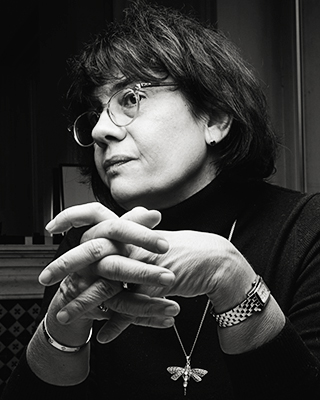
Catherine Malabou
Professor of Philosophy
She is a professor of philosophy at The European Graduate School / EGS and professor of modern European philosophy at the Centre for Research in Modern European Philosophy (CRMEP) at Kingston University, London. She is known for her work on plasticity, a concept she culled from Hegel’s Phenomenology of Spirit, which has proved fertile within contemporary economic, political, and social discourses. Widely regarded as one of the most exciting figures in what has been called “The New French Philosophy”, Malabou’s research and writing covers a range of figures and issues, including the work of Hegel, Freud, Heidegger, and Derrida; the relationship between philosophy, neuroscience, and psychoanalysis; and concepts of essence and difference within feminism.
11:15 – 12:00
THURSDAY, 17 SEPTEMBER
Not Mandatory: When Addiction Replaces Law
“I don’t think you will ever see mandating of a vaccine particularly for the general public. If someone refuses the vaccine in the general public you cannot force someone to take it,” said Dr Anthony Fauci recently. What is the difference between recommending an action, and making it legally binding and compulsory? In my presentation, I suggest that adopting new behaviours are made possible out of new addictions much more than sheer obedience to the law. Caring for global health, becoming ecologically responsible, inventing new ways of life, preparing a possibly different post-covid world implies the development of new addictions, and not only rational decisions. What is addiction? And how is it possible to avoid the return of previous ones? Such issues demand an interdisciplinary treatment, and the collaboration of philosophy, neurology, and ecology.
Catherine Malabou
Professor of Philosophy
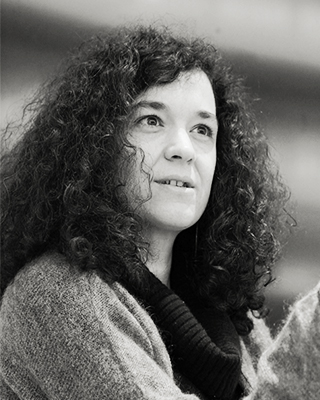
Chiara Bottici
Associate Professor of Philosophy
She is Associate Professor in Philosophy and Director of Gender Studies at The New School for Social Research and Eugene Lang College, New York. She is the author of Imaginal Politics: Images beyond Imagination and The Imaginary (Columbia University Press, 2014), A Philosophy of Political Myth (Cambridge University Press, 2007) and Men and States (Palgrave, 2009). With Benoit Challand, she co-authored Imagining Europe: Myth, Memory, Identity (Cambridge University Press, 2013) and The Myth of the Clash of Civilizations (Routledge, 2010). She also co-edited the collections of essays The Politics of Imagination (Routledge, 2011, with Benoit Challand), The Anarchist Turn (Pluto 2013, with Simon Critchley and Jacob Blumenfeld) and Feminism, Capitalism and Critique (Palgrave 2017, with Banu Bargu). Her short stories have appeared in Il Caffe illustrato and L’immaginazione, while her feminist experimental writing Per tre miti, forse quattro was published by Manni Editore in 2016 and is forthcoming in an English translation with Bloomsbury
17:00 – 17:45
THURSDAY, 17 SEPTEMBER
Rethinking the Human Through the Philosophy of Transindividuality
In order to reimagine the human, we need to unpack the very ontological presuppositions that enabled us to put it at the top of the great chain of being in the first place. In this talk, I will argue that we need to move from a philosophy centred on the notion of individuality to a philosophy of transindividuality, where bodies are not understood as independent substances, let alone as individuals, but as processes of affective and imaginal association that happens at the infra, inter- and supra-individual level. Whereas the notion of transindividuality is most often associated with Gilbert Simondon, following Etienne Balibar, I will argue that Spinoza’s Ethics can provide an alternative and more convincing perspective. Furthermore, I will show how such philosophy of transindividuality can fruitfully be combined with recent insights from symbiotic biology and queer ecologies.
Chiara Bottici
Associate Professor of Philosophy
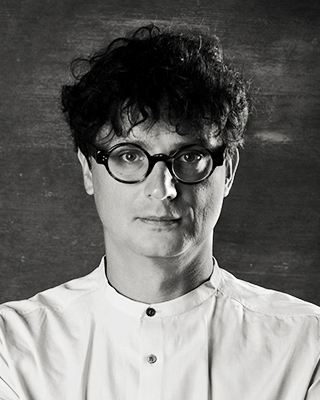
Kristupas Sabolius
Professor of Philosophy
His recent publications include Swamps and the New Imagination. On the Future of Cohabitation in Art, Architecture, and Philosophy (forthcoming, eds. Nomeda & Gediminas Urbonas, Kristupas Sabolius, MIT Press, Sternberg Press), Matter and Imagination. Hybrid Creativity between Science and Art (Vilnius University Press, ed. 2018), Proteus and the Radical Imaginary (Bunkier Sztuki, CAC, 2015) The Imaginary (Vilnius University Press, 2013) as well as numerous essays signalising the contradictory function of imagination as it appears in all the major theories of Western thought. Sabolius was a member of the Swamp School curatorial team at the 16th Venice Architecture Biennale (curated by Nomeda and Gediminas Urbonas in 2018). He is also an active public intellectual and a writer of novels, theatre plays and film scripts, including The Gambler (2014) and Invisible (2019), both co-written with director Ignas Jonynas. Since co-founding The School of Creativity with Tomas Ramanauskas in 2017, he has been a lecturer and host for the school, which functions as an interactive platform for schoolchildren that is designed to foster creative takes on traditional school curricula.
13:00 – 13:45
THURSDAY, 17 SEPTEMBER
We Are Milieus
“The biological relationship between the being and its milieu is a functional relationship, and thereby a mobile one; its terms successively exchange roles” wrote George Canghuilhem. The history of the concept of milieu undergoes interesting transformations, eventually unfolding in Gilbert Simondon’s philosophy who famously proposes the concept of “associated milieus”– the networks of pre-individual relationships that cannot be separated from the individual organism –as they both condition and empower it. In fact, the milieu is a field of openness and closure; it is never fully determined, although we are always deeply embedded in the concrete setting of our closest environment of cohabitation.
One can say that the milieu constitutes the field of relations that link the individual to its potentiality. This is why the more the individual is linked to its milieu, the less it functions deterministically. Today, along the lines of Simondon’s thinking, we can not only think of organisms as directly related to milieus, but also perceive ourselves as someone else’s milieu. And – if we are always in someone’s milieu – what does it mean to co-create ourselves and others? What is this creativity that lies outside us?
Kristupas Sabolius
Professor of Philosophy
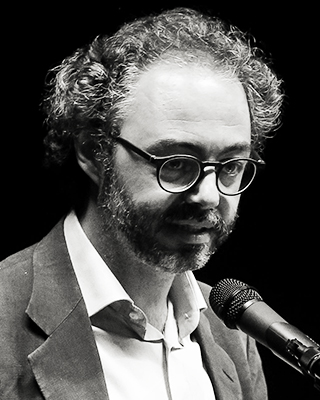
Dario Cecchi
Assistant Professor of Aesthetics
He teaches in MA Programs of Philosophy and Fashion Studies. Previously, he was Post-doc in the same university, in EHESS – Paris and PhD student at the Alma Mater Studiorum University of Bologna. His interests range from the legacy of Kantian aesthetics in the 20th century, with regard especially to relationship to ethics and politics (Arendt, Lyotard), to the role of the reader’s aesthetic experience in the process of textual interpretation (Iser, Jauss), also applied to the visual arts (Marin), and more generally the theory of the work of art as ‘attention device’. In this light, he also studies pragmatism, especially John Dewey. He published four books on the role of art and imagination in media technics, the status of the documentary images, the cinema of Abbas Kiarostami and the aesthetics of John Dewey. He also translated into Italian two volumes of essays, respectively of John Dewey and Jean-François Lyotard. He has published several articles and essays, in Italian, English and French, in collective volumes and international journals.
12:45 – 13:30
FRIDAY, 18 SEPTEMBER
Imagination, Creativity, Art and AI
In his essay on Creativity (1978/2010) the Italian philosopher Emilio Garroni argues that, as far as an evolutionary perspective is concerned with the operations targeting the fulfilment of life needs, the difference between human and non-human creativity depends on the respective attitude in reflection while using tools. He calls the specifically human attitude “meta-operation”. Following Leroi-Gourhan, he believes indeed that only humans shows the ability of using tools for the sake of fabricating or empowering the use of other tools. Whether this hypothesis is still valid or not at a scientific stage, it is yet true that human creativity unveils the unpredictability of consequences and effects of actions, as well as the indeterminacy of properties and affordances available in nature through its free exploration. Noteworthily, this view on creativity largely depends on an original interpretation of Kant’s Critique of Judgment, in particular his theory of genius. According to this reading, imagination working creatively is concerned neither exclusively nor primarily with the so-called “fine arts”, but entails all sorts of design projecting new forms of life: from this point of view, domestication, agriculture or urban housing would be trans-historical forms of creativity much more relevant to the understanding of its meta-operative import than the fine arts. What is then the place of art as creative phenomenon? Garroni argues that art is the free exercise of the meta-operative creativity for its own sake, with no goal either immediate or mediated. More interestingly, art is likely to especially deal with the anxiety engendered by the systematic exposure to unpredictability and indeterminacy. Is it through the anxiety creatively elaborated by art that imagination shapes the human identity? And is this identitarian trait relevant to the difference more between animality and machinery, rather than humans and non-humans? Is the faculty of feeling anxiety originally bound to the ability of being exposed to the contingency of events, instead of only elaborating a flux of data as AI does – by the way, incredibly better than humans? Is the conjunction of anxiety and creativity one major factor in the genesis of the human intelligence’s plasticity? And is it for this very reason that, pace Manovich, AI-driven art still looks so controversial?
Dario Cecchi
Assistant Professor of Aesthetics
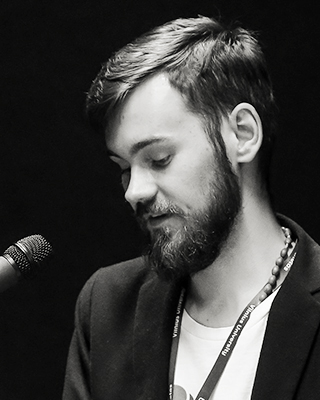
Ruslanas Baranovas
PhD candidate
His main research interests are classical German philosophy, new and speculative realisms, and new materialisms. His recent publications include Why Kant is a weak conceptualist (Problemos, Vol 95, 2019) and Virtuality and the Problem of Agency in Object-Oriented Ontology (Open Philosophy, 3, 2020).
16:15 – 17:00
THURSDAY, 17 SEPTEMBER
Grammatology and the Sadness of Being Human
In my presentation, I will explore the relationship between human life, sadness, and writing in Derrida’s Of Grammatology. I will begin my talk by noting that like nearly all Derrida’s texts, Grammatology lacks the proper introduction into why Derrida tackles the subject of writing. My aim will be to show that for him the privilege of phone over gramme is the ground on which the metaphysical notions of meaning, self-understanding and, most importantly, good life are built. Therefore, the deconstruction of logocentrism is also a deconstruction of all of these notions. I will also claim that, notwithstanding some Nietzschean tendencies, this results in some form of quasi-transcendental sadness of the human condition. Further arguments for this claim will be provided by an analysis of the chapter of Grammatology devoted to Rousseau and an analysis of Caputo’s interpretation of Derrida in his Cold Hermeneutics. To conclude my talk, I will ask if such quasi-transcendental sadness of human condition is not a critical limitation of Derrida’s thought, because a-historicity of sadness removes any possibility of essentially changing one’s condition through history.
Ruslanas Baranovas
PhD candidate
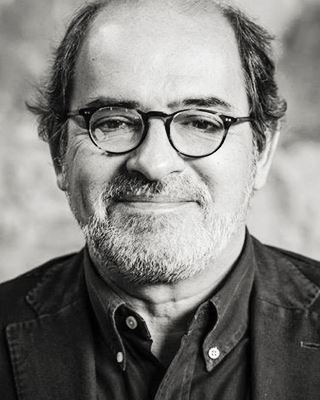
Vittorio Gallese
Professor of Psychobiology
He is Professor of Psychobiology and Cognitive Neuroscience at the Dept. of Medicine & Surgery of the University of Parma, Italy, Adjunct Senior Research Scholar, Department of Art History and Archaeology, Columbia University, New York, USA, Honorary Fellow of the Institute of Philosophy of the School of Advanced Study of the University of London and Einstein Fellow at the Berlin School of Mind & Brain of Humboldt Universität. A cognitive neuroscientist, his research focuses on the relation between the sensorimotor system and cognition by investigating the neurobiological and bodily grounding of intersubjectivity, psychopathology, language and aesthetics. He is the author of more than 300 scientific publications and three books.
12:00 – 12:45
THURSDAY, 17 SEPTEMBER
The Empathic Body. Embodied Simulation and Experimental Aesthetics
By exploiting the empirical approach of neuroscience and physiology, we can investigate the brain-body mechanisms enabling our interactions with man-made images, shedding light on the functional mechanisms enabling their perceptual experience. In doing so we can deconstruct some of the concepts we normally use when referring to aesthetics and art. According to Hans Gumbrecht (2004), aesthetic experience involves two components: one deals with meaning, the other one with presence. The notion of presence entails the bodily involvement of image beholders through a synesthetic multimodal relationship with the artistic/cultural artefact. I will present some of our research results, which show that the creative expressive processes characterising our species, in spite of their progressive abstraction and externalisation from the body, keep their bodily ties intact. Creative expression is tied to the body not only because the body is the instrument of creative expression, but also because it is the main medium allowing its experience.
Vittorio Gallese
Professor of Psychobiology
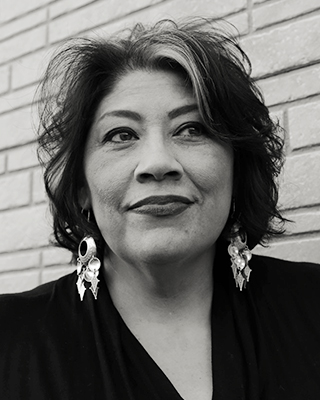
Kim TallBear
Associate Professor of Indigenous Studies
She is also a Pierre Elliot Trudeau Foundation Fellow. Dr. TallBear is the author of Native American DNA: Tribal Belonging and the False Promise of Genetic Science. Building on her research on the role of technoscience in settler colonialism, Dr. TallBear also studies the colonisation of Indigenous sexuality. She is a regular commentator in US, Canadian, and UK media outlets on issues related to Indigenous peoples, science, and technology as well as Indigenous sexualities. She is a regular panellist on the weekly podcast, Media Indigena. She is a citizen of the Sisseton-Wahpeton Oyate in lands now occupied by the USA and South Dakota.
16:30 – 17:15
FRIDAY, 18 SEPTEMBER
Settler Relations are Property Relations
My longstanding work Indigenous DNA research ethics, politics, and commercialisation in the US and Canada has segued into work on Indigenous materialisms and decolonial sexualities. My approach to examining relations between human bodies and with other-than-human entities has also been informed by critical race scholar Cheryl Harris’s ground-breaking work on whiteness as property. In that paradigm-shifting 1993 Harvard Law Review article, she explains the links between private property and white supremacy in the US settler state. My empirical work analysed in part through Harris’s lens, shows how the settler state turns all relations into property or properties – be they human or other-than-human, e.g. land, water, and “resources” including biological (re)sources. Settler relations as property are also made manifest in the cultural-regulatory bundle of marriage/monogamy/nuclear family/private property that was imposed by settler states such as the US and Canada onto Indigenous peoples and other aspiring citizens. The settler state that privileges propertied hierarchies among beings should not be our guiding hope. An ethic of Indigenous relationality or being in good relation with one another and with our other-than-human relatives is an alternative guiding narrative in this time of US empire fall and planetary transition.
Kim TallBear
Associate Professor of Indigenous Studies
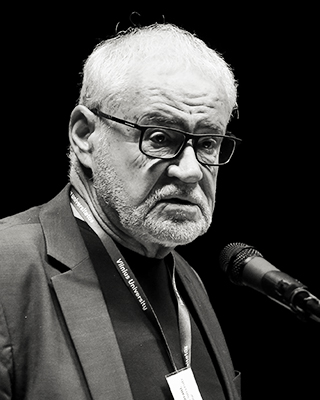
Pietro Montani
Professor of Philosophy
A senior researcher at Vilnius University and Honorary Professor at the Department of Philosophy of Sapienza, University of Rome. He taught Aesthetics at the Centro Sperimentale di Cinematografia in Rome and, as Directeur d’études associé, at the École des Hautes Etudes en Sciences Sociales in Paris. He is currently a member of the International Research Project The Future of Humanity: New Scenarios of Imagination at Vilnius University. He is the Scientific Coordinator for the Italian Edition of S. M. Eisenstein, Selected Works (9 volumes, Marsilio, Venezia 1981–2020, in progress). In the last 15 years his research interests have been focused on the relationship between art and technology and particularly on the influence of new technologies on imaginative processes and common sense. His latest book is Emozioni dell’intelligenza, (Meltemi, Milano, 2020).
11:00 – 11:45
FRIDAY, 18 SEPTEMBER
Rehumanising the Imagination: An Endless Task
Anthropocentrism is a naive cultural claim. Persistent, ingrained, but easy to dismantle. Anthropomorphism, on the contrary, is an epistemological presupposition from which one can distance oneself only after having understood its reasons without prejudice. The epistemological relevance of anthropomorphism is central to Kant's Critique of Judgment, where it is presented as part of a critical reflection on sensitivity (Aisthesis) and imagination. I will discuss two concepts of this book – “purposiveness of nature” and “schematising without concept”– in which it is highlighted that, thanks to the freedom of the imagination, the plasticity of human cognition is intimately connected with technique and its aspirations for domination. From this point of view I would like to suggest that the interweaving of the imagination with technology could correspond to an (ethical) commitment to relaunch in the context of historically dominant technologies an endless and creative project of rediscovery of the human.
Pietro Montani
Professor of Philosophy
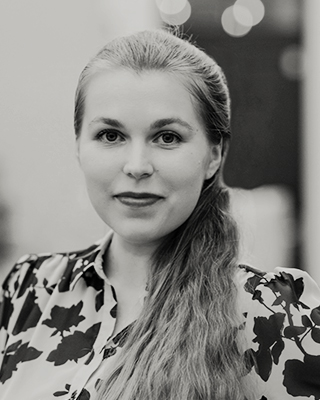
Daina Habdankaitė
PhD candidate
Her thesis topic is Ontologies of the Future in Contemporary Philosophy: Stiegler and Meillassoux. Habdankaitė is a junior researcher in the project The Future of Humanity: New Scenarios of Imagination at Vilnius University and leader of the junior research group in the project Absolute in Modern and Contemporary Ontologies: Hegel and Meillassoux at Vilnius university.
Her research interests include French postmodernism and contemporary philosophy.
11:45 – 12:30
FRIDAY, 18 SEPTEMBER
The End is Near. But for Whom?
Widely discussed, and even discarded by some, the idea of the Anthropocene as the era we are living in poses a question about the future of both humanity and the Earth in general. The prospect of self-destruction becoming more and more real in the context of climate change, mass extinction of animal and plant species, and political crises due to major power shifts within the society, results in the question of how to live and act in today’s world so that there is a tomorrow becomes increasingly urgent. One of the possible strategies to face the threat of human (and not only) extinction is proposed by Jean-Pierre Dupuy as the concept of catastrophism. Dupuy suggests thinking the future of humanity as inevitably leading to a complete self-destruction which is supposed to reactivate the present by engaging the ethical subject to do everything it takes to avoid the unavoidable. Yet the question that remains untouched by Dupuy’s catastrophism is what kind of subject is to experience the mental and consequentially practical exercise of catastrophism. Does it mean that in order to think their inevitable extinction and take upon the responsibility for their actions leading to it humanity needs to transform? And if so, in what way? In this paper, three aspects of Dupuy’s subject of catastrophism are discussed alongside Martin Heidegger’s future-oriented Dasein, Gilles Deleuze’s becoming-other, and the uncanniness of (non)human in Patricia Piccinini’s artwork: 1) the strain on imagination when thinking the unthinkable – the complete destruction of any subject whatsoever; 2) the guilt brought into action by the urge to transform oneself in the face of a catastrophe; 3) the weirding of the human as a path towards becoming more human(e).
Daina Habdankaitė
PhD candidate
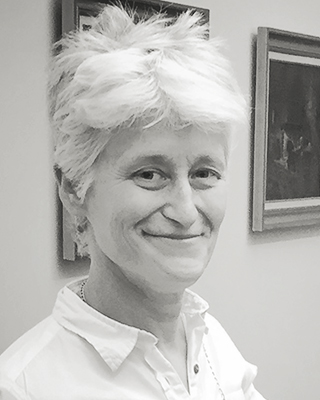
Elizabeth A. Povinelli
Professor of Anthropology
She is Franz Boas Professor of Anthropology at Columbia University, New York; Corresponding Fellow of the Australian Academy for the Humanities; and one of the founding members of the Karrabing Film Collective. Povinelli’s writing has focused on developing a critical theory of late liberalism that would support an anthropology of the otherwise. This potential theory has unfolded primarily from within a sustained relationship with Indigenous colleagues in north Australia and across five books, numerous essays, and six films with the Karrabing Film Collective. Her recent publications include Geontologies: A Requiem to Late Liberalism (2016) and an upcoming graphic essay, The Inheritance (Duke, 2020). Povinelli lives and works in New York and Darwin. Geontologies: A Requiem to Late Liberalism was the 2017 recipient of the Lionel Trilling Book Award. Karrabing films were awarded the 2015 Visible Award and the 2015 Cinema Nova Award Best Short Fiction Film, Melbourne International Film Festival and have shown internationally including in the Berlinale, Sydney Biennale; MIFF, the Tate Modern, documenta-14, the Contour Biennale; MoMA-PS1 and numerous others.
15:00 – 15:45
FRIDAY, 18 SEPTEMBER
Four Axioms of Existence in Toxic Late Liberalism
In my talk I shall examine four axioms of existence that have emerged in recent years across a significant segment of critical theory: the entanglement of existence; the unequal distribution of power to affect the local and transversal terrains of this entanglement; the multiplicity and collapse of the event as the sine qua non of political thought; and the racial and colonial history that informed modern western ontologies and epistemologies and the concept of the west as such. More than the axioms, I am interested in the broader anticolonial struggles from which these axioms emerged and a reactionary formation, late liberalism, which has attempted to remould, blunt, and redirect these struggles in content of contemporary climatic, environmental, viral and social collapse. Although I treat these axioms as distinct theoretical statements, they are in fact part of much broader discursive surfaces reflecting opposing currents in the direction of political thought and action in the wake of geontopower. My talk seeks to show how a seemingly casual syntactic arrangement of theoretical statements results in dramatically differing paradigms for figuring the present as a coming catastrophe (l’catastrophe à venir) and as an ancestral one (l’catastrophe ancestral/histoire).
Elizabeth A. Povinelli
Professor of Anthropology
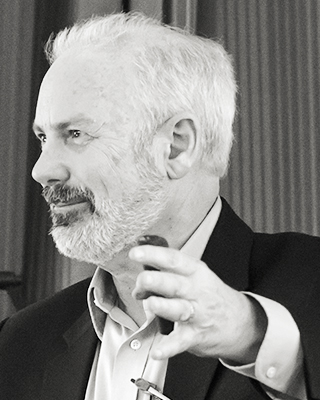
Scott F. Gilbert
Professor of Biology
He is also a Finland Distinguished Professor, emeritus, at the University of Helsinki Department of Biotechnology. He received his BA in both biology and religion from Wesleyan University, and he received his PhD in biology and his MA in the history of science from The Johns Hopkins University. Scott's scientific research studies how novel structures evolve through changes in development, and he has focused his attention on how the turtle gets its shell and on how herbivory arose through symbiotic interactions. His historical and philosophical research has recently looked at the implications of the holobiont theory for modelling life, health, and politics. Scott currently has three books in print: (1) Developmental Biology (now in its twelfth edition) (2) Ecological Developmental Biology, and (3) Fear, Wonder, and Science in the New Age of Reproductive Biotechnology, a bioethics trade-book concerning fertilisation, early human development, and infertility. Scott has received several honours, including the Alexander Kowalevsky Medal and honorary doctorates from the University of Helsinki and the University of Tartu. He has been a panellist in Vatican conferences on evolution and embryology, and he has presented a lecture on embryology to His Holiness, the Dalai Lama.
17:15 – 18:00
FRIDAY, 18 SEPTEMBER
Holobionts: The Living Art of Becoming with the Other
Biology is undergoing a paradigm change. Animals and plants can no longer be considered individuals by the classical definitions of the term. About half the cells of a human being are bacteria and fungi, and each pore is an ecosystem. We are “holobionts” – a consortium of microbes and host eukaryotic cells working together. Moreover, these microbes are critical for our normal physiology. Mammalian blood circulation and peristalsis, for instance, depends on bacteria, which help mature our gut capillaries and neurons. Bacteria help construct our bodies. Furthermore, these microbes may play crucial roles in permitting our immune and cognitive abilities. The microbes thus help make us who we are and regulate our interactions with others. A human is both individual and biome, and microbes have opened new evolutionary trajectories for mammals. Indeed, seen from the microbe's point of view, eukaryotic organisms, including humans, are niches, made by microbes, for the propagation and speciation of more microbes.
Scott F. Gilbert
Professor of Biology
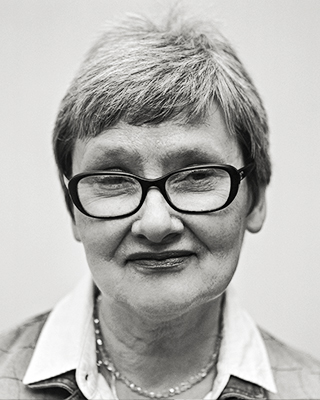
Rita Šerpytytė
Professor of Philosophy
Her research involves Heidegger’s philosophy, Hegel’s philosophy, Postmodern philosophy, Contemporary Italian philosophy (Gianni Vattimo, Giorgio Agamben and others); Speculative and New Realisms; the problem of Nihilism and Negativity in Western Philosophy. She was a Visiting Fellow at the Department of Philosophy, Sapienza University of Rome (1993 and 1996); a Visiting Researcher of the Center for Religious Studies, Trento (2004), a Visiting Professor of the University of Turin (2019–2020). She has lectured at universities in Italy, Spain, Portugal, Belgium, Austria, USA and has been an invited lecturer of international conferences at different universities in Italy, Spain, France, Germany. She is the author of several books, including: Nihilism and Western Philosophy (Vilnius University Press, 2007); Transformations of Ontology: Media, Nihilism, Ethics, co-ed. with D. Bacevičiūtė and Tomas Sodeika, (Vilnius University Press, 2015); and Spectres of Reality. Western Nihilism between Diagnosis and Theory, (Vilnius University Press, 2019).
15:30 – 16:15
THURSDAY, 17 SEPTEMBER
The Challenge of the Subject in the Face of the Real
In one of her recent interviews, Catherine Malabou pointed out a problem which I deem to be pivotal in considering the question of the real with all its implications: speculative realists are indifferent to the subject. In this paper, I will present my position that in contemporary philosophy it is precisely the problem of the subject that becomes an actual challenge when raising the question “What kind of reality are we talking about?”; “What is real?” In light of treating the problem of the subject as a theoretical challenge in regard to the question of reality, two positions – that of Catherine Malabou (The New Wounded, Before Tomorrow) and Giorgio Agamben (Infanzia e storia) – will be analysed and attempted to be compared. I will endeavour to discuss how the notion of the subject, the question of its identities, its transformations, being human-non-human, correlated to the question of reality.
Rita Šerpytytė
Professor of Philosophy
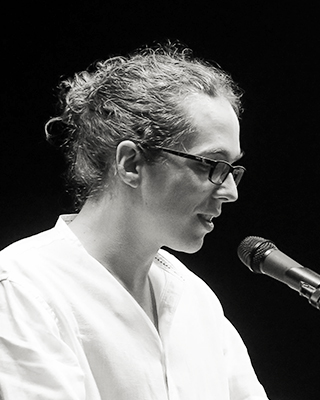
Ignas Šatkauskas
Junior Researcher
PhD thesis defended on 5 October, 2018, titled “Edmund Husserl’s Phenomenology of Attention: Origin and Genesis”. He is a junior researcher in the project The Future of Humanity: New Scenarios of Imagination at Vilnius university. In the last 5 years his research interests have focused on the study of attention and particularly on the phenomenological notions of attention. Another important field of interest, since 2017 has been the study of Indigenous peoples’ cultures and worldviews, particularly of the anthropology of Amerindian perspectivism and its philosophical appropriation in discussion with contemporary philosophies.
15:45 – 16:30
FRIDAY, 18 SEPTEMBER
Reimagining Non-Human Perspective
In a recent interview, Eduardo Viveiros de Castro said, with some irony, that it is time to take the point of view of polar bears seriously. From such point of view, according to him, we can entertain the accuracy of certain “geontological” concepts such as the Anthropocene and the Capitalocene. It turns out that from the perspective of polar bears and other ecologically threatened species, Anthropocene figures as the appropriate and accurate term rather than Capitalocene. So what does it mean to take on the perspective of the other? What kind of strain does it put on imagination? What if the other is of other species or even of non-organic constitution? What does it mean to imagine a radically different perspective from that of the human, what does it entail to imagine from a radically different perspective? We are arriving at the renewal of the use of the philosophical concept of perspectivism. According to Viveiros de Castro, it follows that we don’t need to imagine the others as humans, like certain indigenous cultures do, but we can imagine them as subjects with vital interests, which hints to a type of Nietzschean perspectivism. At the same time a certain merging of the boundaries between life and non-life happens along with a radical shift of the perspective. This points to consider perspectivism and indigenous thought as defined by taking the other’s point of view in relation with epigenetics, embodied simulation and the theory of entanglement which sees living and non-living realms as interdependent entanglements and refers to the irrelevance of the separation of said realms. Is it possible to think of or simulate the perspective of non-organic entities? If the separation continues to dissipate, then the range of the possibility of taking the other’s perspective increases and at the same time becomes more available for articulation.
Ignas Šatkauskas
Junior Researcher
Programme
| 11:00 – 11:15 |
Opening & Welcome SpeechesRimvydas Petrauskas, Rector of Vilnius University.
|
|
MORNING SESSIONModerated by Daina Habdankaitė |
||
|
|
| 11:15 – 12:00 |
Not Mandatory: When Addiction Replaces LawCatherine Malabou, Kingston University / University of California Irvine |
|
|
|
| 12:00 – 12:45 |
The Empathic Body. Embodied Simulation and Experimental Aesthetics.Vittorio Gallese, University of Parma / Columbia University / Humboldt Universität |
|
|
|
| 12:45 – 13:00 |
Break |
|
|
|
| 13:00 – 13:45 |
We Are MilieusKristupas Sabolius, Vilnius University / MIT |
|
|
|
| 13:45 – 14:30 |
Panel discussion: Catherine Malabou, Vittorio Gallese, Kristupas SaboliusModerated by Elizabeth A. Povinelli |
|
|
|
| 14:30 – 15:30 |
Break |
|
|
|
AFTERNOON SESSIONModerated by Ignas Šatkauskas |
||
|
|
| 15:30 – 16:15 |
The Challenge of the Subject in the Face of the RealRita Šerpytytė, Vilnius University |
|
|
|
| 16:15 – 17:00 |
Grammatology and the Sadness of Being HumanRuslanas Baranovas, Vilnius University |
|
|
|
| 17:00 – 17:45 |
Rethinking the Human Through the Philosophy of TransindividualityChiara Bottici, The New School for Social Research |
|
|
|
| 17:45 – 18:30 |
Panel discussion: Rita Šerpytytė, Ruslanas Baranovas, Chiara BotticiModerated by Catherine Malabou |
|
|
|
MORNING SESSIONModerated by Ruslanas Baranovas |
||
|
|
| 11:00 – 11:45 |
Rehumanising the Imagination: An Endless TaskPietro Montani, Vilnius University / Sapienza, University of Rome |
|
|
|
| 11:45 – 12:30 |
The End is Near. But for Whom?Daina Habdankaitė, Vilnius University |
|
|
|
| 12:30 – 12:45 |
Break |
|
|
|
| 12:45 – 13:30 |
Imagination, Creativity, Art and AIDario Cecchi, Sapienza, University of Rome |
|
|
|
| 13:30 – 14:00 |
Panel discussion: Dario Cecchi, Daina Habdankaitė, Pietro MontaniModerated by Kristupas Sabolius |
|
|
|
| 14:00 – 15:00 |
Break |
|
|
|
AFTERNOON SESSIONModerated by Daina Habdankaitė |
||
|
|
| 15:00 – 15:45 |
Four Axioms of Existence in Toxic Late LiberalismElizabeth A. Povinelli, Columbia University |
|
|
|
| 15:45 – 16:30 |
Reimagining Non-Human PerspectiveIgnas Šatkauskas, Vilnius University |
|
|
|
| 16:30 – 17:15 |
Settler Relations are Property RelationsKim TallBear, University of Alberta |
|
|
|
| 17:15 – 18:00 |
Holobionts: The Living Art of Becoming with the OtherScott F. Gilbert, Swarthmore College / University of Helsinki |
|
|
|
| 18:00 – 19:00 |
Panel discussion: Elizabeth A. Povinelli, Ignas Šatkauskas, Kim TallBear, Scott F. GilbertModerated by Chiara Bottici |
|
|
|
Organised by:
Kristupas Sabolius (Vilnius University / MIT), Pietro Montani (Vilnius University / Sapienza, University of Rome), Rita Šerpytytė (Vilnius University), Ignas Šatkauskas (Vilnius University).
This symposium is a part of the European research project The Future of Humanity: New Scenarios of Imagination (Vilnius University). This project has received funding from the European Social Fund (project No 09.3.3-LMT-K-712-01-0078) under a grant agreement with the Research Council of Lithuania (LMTLT).

